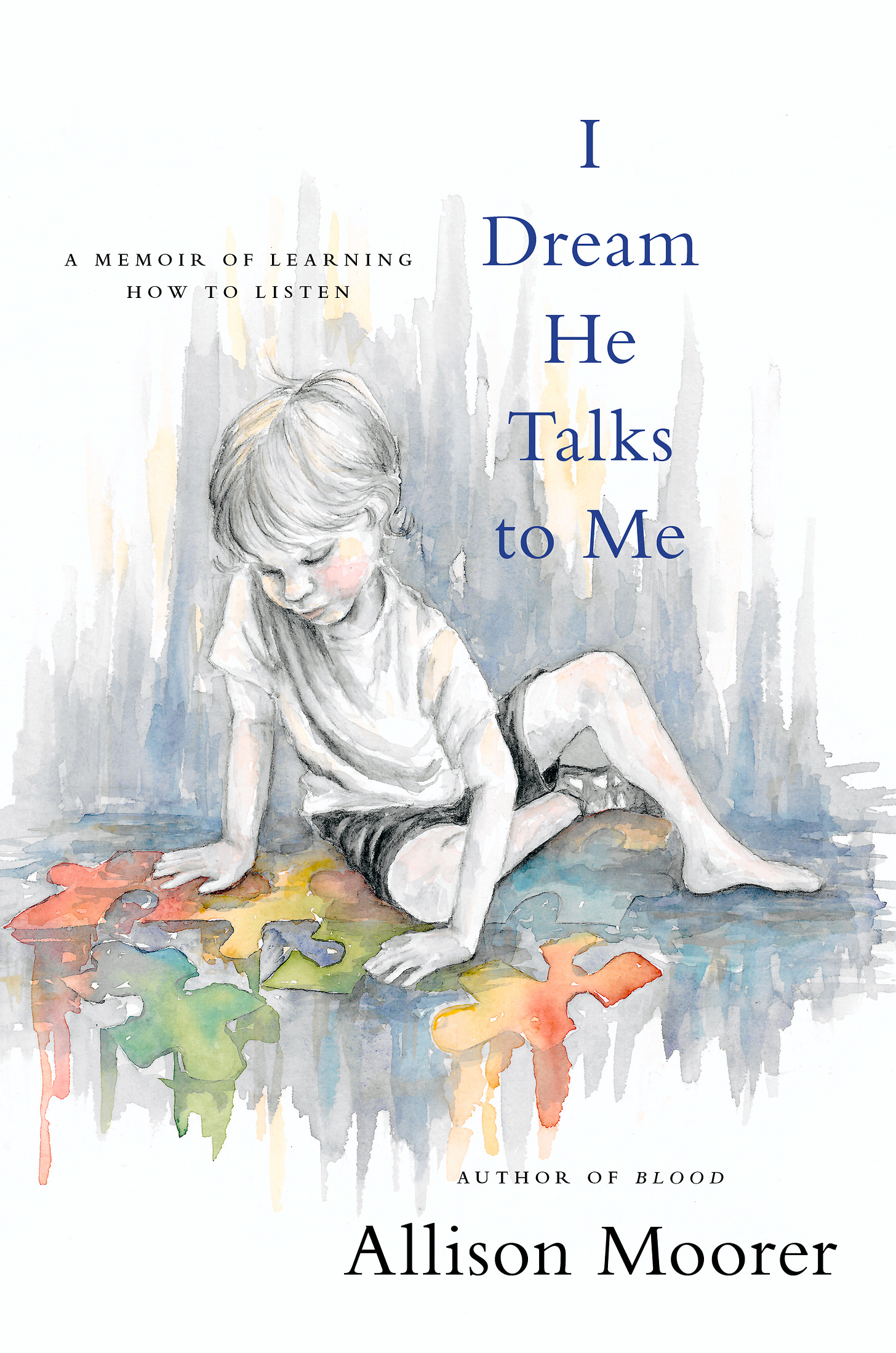Hi Substack friends. I hope you enjoy this question and answer series, which I hope to post weekly, on Fridays. It means the world to me to have you here, so thank you again for joining me, and thank you for providing these great questions.
I got so many good questions to think about from the post you responded to last week that it was hard to know where to start. But since I’ve been working on some promotional materials for my next book release, I thought I’d go with a question that is directly related to the subject of parenting and autism.
Thank you Debbie T. for this thoughtful question.
The vulnerability you share in your writings, the soulful feelings you convey with your beautiful voice when you sing ... they move me in a deep and profound way. Thank you for being a conduit of so many things I think and feel, but am unable to express on my own. My question might be answered in your upcoming book, I Dream He Talks to Me, but I won’t receive my copy until October. I hope you’ll consider answering this question now if it is not too personal.
When you feel overwhelmed with concerns (surely you do? ) when you look at John Henry’s long-term future, how do you cope, from a practical and emotional standpoint?
Dear Debbie,
First, thank you for your sweet compliments about my singing and writing. I often feel that I have no actual marketable skills and that if I had to get a job that required me to submit a resume I’d be in real trouble, but those realizations and fears are assuaged by my deep knowing that I am blessed beyond measure to be an artist who has the opportunity to touch others through what I make. I am truly grateful and thankful that I have been blessed in such a way. For those of you out there who think your kindness and encouragement doesn’t make a difference to creators, please know that it does. In fact, some days it’s what keeps us going.
Debbie, you are correct in your belief that I worry over John Henry’s future. And never forget the future is also five minutes from now. For those readers who don’t know, my son has Level III autism and is, at present, non-speaking.
What parent doesn’t worry about how their children will turn out? We all do. But I’ll put it like this: I once expressed my extreme anxiety about John Henry’s trajectory and all of the horror stories I could create in my mind about what could happen to him if I couldn’t at some point be by his side. She told me, and I don’t believe she meant this in an unkind way at all, “None of us know how our children are ultimately going to do.” I replied, “Of course, you’re right. But I bet I don’t know more than you don’t know.” And that’s just about statistics and odds.
But I know another thing about statistics and odds, and it’s that they often mean nothing, because even a 1% chance is a 1% chance, isn’t it? And that’s all you need — that 1% — to defy the other 99%. I promise you — I have more hope for and belief in John Henry than I can even explain. And something tells me that he’s going to be okay. That’s not just because his father, stepfather, and I work terribly hard to provide what he needs now and what he’ll need in the future — that’s because of what I see and feel in him.
Having said that, here’s how I get through my every day, even when those days are tough, dark ones.
I try to arm myself with as much information as I can about what my son’s rights are — and that’s inside and outside of the school system — he won’t be in school forever. Being prepared is always a huge comfort for me. It has taken years, but I’m finally starting to settle down a little bit in my heart about it all. All I can do on my end is everything I can do — making sure his life while I’m on the planet is the best I can make it be for him, and trying to make sure things are sorted for him when his father, stepfather, and I are gone — and even though I know all of that planing and sorting probably won’t be enough, I cope by continuing to learn how to be in the moment, by trying to learn that it will probably be okay and that I have to at some point let go of thinking I can control it even just a little because I actually can’t, by seeing and knowing that John Henry is happy, confident, safe, and knows he is loved, by remembering that this could all crumble tomorrow and we’d all be gone. I do my best when I don’t forget that all we really have is today.
And I pray. I pray right into the top of his precious head when he’ll let me pull him close. I inhale to feel his spirit flow through me and I exhale the most deeply solemn mother’s hope I can muster. Then I just believe.
AM
18 June 2021






I’m constantly amazed at your ability as someone with your history and artistic sensibilities to share your innermost vulnerabilities so freely with us! 🎼💖💕
Not a question, but I often find that I have (too) long responses to your incredible blog posts. The following is a Facebook post by Jennifer Litton Tidd that resonated with me, and I think will resonate with you, too. I've referred in the past to JH as one of my (our) greatest teachers, and while I realize that's mighty personal, a statement like this illustrates perfectly the "why" behind why I say that. :
I think I need to share this story because people need to understand how to appropriately interact with other humans, and how to be a better ally to disabled people.
I took my 15 year old autistic son to the pool for the first time this summer a couple weeks ago. He LOVES swimming. He was laughing out loud and smiling for the first two hours he was there. His joy was infectious and most were happy to see it. Two women in the pool though, were visibly annoyed, and decided it was time to shush him.
Q-man doesn’t do being shushed. And he self-advocated and said, “No no shhhh, Q is HAPPY!” We were at a pool with a big waterslide and lots of kids yelling, laughing and splashing. They decided to shush Q again for a second time about 15 minutes later. The first time they shushed him, I saw that he was standing up for himself, so I only moved closer, so he’d see I was there for backup, and that I approved of his self-advocacy. The second time they shushed him, I jumped in and walked over to them and told them to stop talking to my son. He’s being no louder than anyone else, that it was clear from their reactions and the situation, it wasn’t noise they objected to, but HIS sounds specifically. They apologized and then left him alone the remainder of the time we were there.
A woman approached me later in the locker-room to tell me she loves the sound of laughter of “special needs kids” and “intellectually challenged kids like your son.” Clearly, she was trying to be supportive, but let me be clear about several things. First off, his needs aren’t “special.” The need to be treated with respect, dignity, and support for his feelings aren’t special. These are needs any human has. Secondly, my son is not ID. Don’t assume to know someone’s diagnosis. He’s just a fellow human who was happy and laughing; that’s all this person knew, and all that needed to be said. There is nothing wrong at all with ID people, so it wasn’t an insult, just inaccurate. But I don’t need to justify his laughter or behavior by explaining to every stranger that he’s autistic. My son doesn’t exist to be everyone else’s teachable moment.
And thirdly, in my van on the way home, I thought more about it. It seems to me rather than whispering support in a locker-room, I’d have much preferred public support for my son. If I’d witnessed the same situation, I’d have responded to the shushing of a person like my son, “I love the sound of your laughter and happiness, thanks for sharing your joy.” Don’t other him. His autism in this situation wasn’t relevant. He also is impaired with his speaking communication, but his hearing is crystal clear. So talking about him in the third person rather than TO him about his laughter is erasure. Always assume competence first, please. He likes being talked to and complimented, JUST LIKE YOU.
He was just one of many happy people swimming at the pool; that’s all. His noises and physicality of being autistic aren’t typical of other 15 year olds, but they are perfectly natural, and how he expresses joy. I really don’t get why he can’t just be out in the world as a happy person laughing, and people can’t just see him as a fellow human having a good time.
Please do support someone being ganged up on, but please have the courage to do it in the situation without othering them further. Laughter is laughter, and all he was doing was laughing. Why should there be all this undercurrent and weirdness about a kid laughing and having fun at the pool?
I see it as yet another form of neurodivergent tone-policing. Not only do we have to express frustration or anger like NTs, but also, LAUGHTER? A person can’t just be elated and laugh how he wants without being policed?